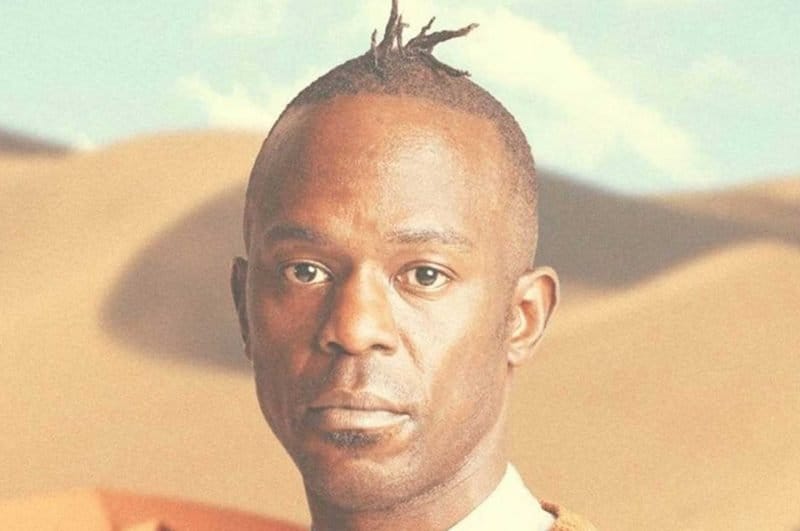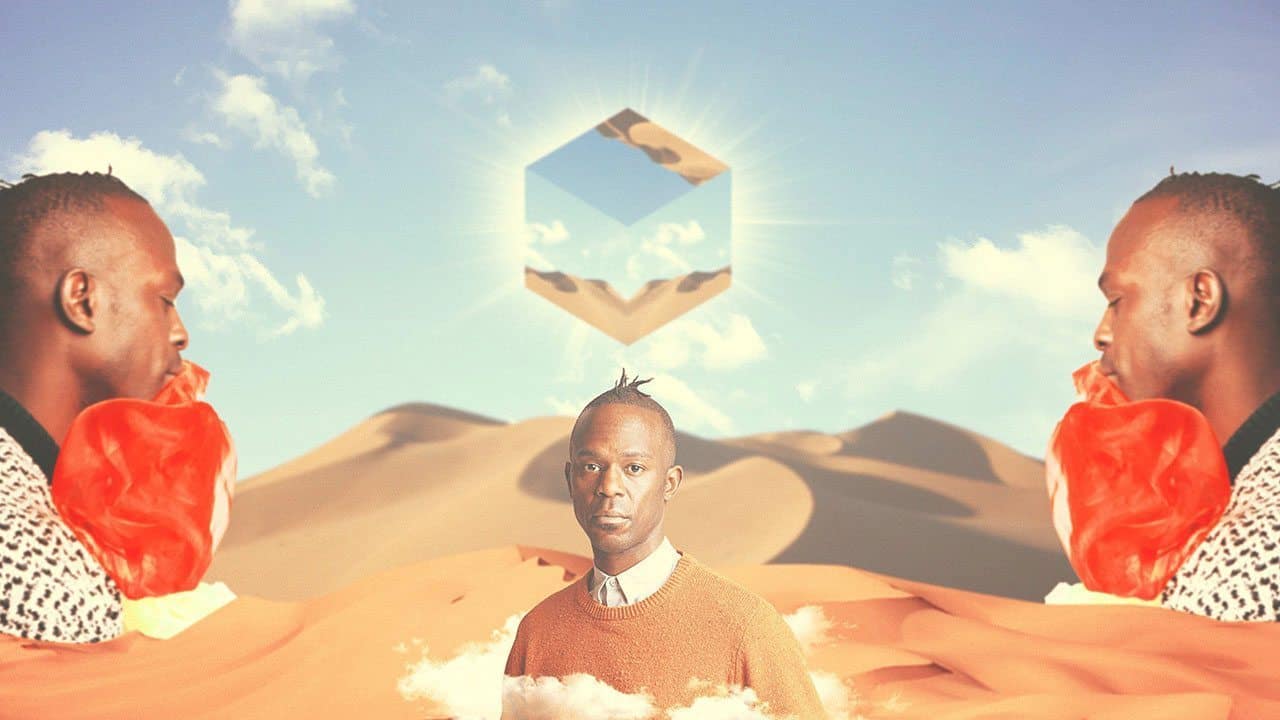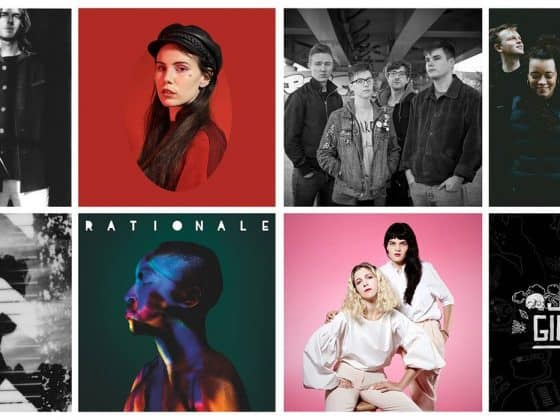For Ugandan born, London based singer-songwriter Byron Biroli, music is a form of catharsis, it is where he let?s go of his fears by making them into songs. His vocal style, lyrics and themes are a representation of uniquely diverse background and upbringing: a mix of Indie, New Wave and Soul influences from bands like Talking Heads, The Cure, Depeche Mode to Prince, Sade and Soul 2 Soul and African music forms, both ancient and contemporary.
Debut solo single “So Naive”
After releasing his debut single last year, Byron recorded about 30 songs in just over a year. ?So Naive? was the first release of much more to come, leading to a full LP soon. I am delighted to introduce Byron Biroli.
You’ve been playing in different bands before, and now you are starting your solo career. Tell me about the journey up until this moment.
I developed a fruitful relationship with EMI just after high school; my parents were not liking what I was doing, I failed my exams and didn’t get into university. Then my parents asked me to go to Uganda on holiday. It turned out to be a punishment for failing my exams. They forced me to stay for two years to teach me a lesson about privilege, and maybe to knock some sense into me. I hated them and the experience at first but eventually found my feet. I went to school, did some acting on a TV Soap Opera – similar to The Days of our Lives and played rugby for Uganda.
Then I got back tried the whole ‘getting a proper job’ thing. Got fired and got into drugs in a way that wasn’t healthy, squatting, squat raves, dreaming. It was while squatting that I got to hang out with serious musicians and artists for the first time. People like Shingai Shoniwa from the Noisettes, Kate Tempest and many more. As well as musicians who played all sorts of music from jazz to reggae to electronica.
I learned how to communicate with musicians and over time deal with my own demons and regrets.
Two years ago I asked one of my long-term collaborators, producer and multi-instrumentalist, George Bird, to help me record some songs. We didn’t need to talk about much; we just did it. 30 tracks later, my debut solo project is born and ready.
Latest single “Kings”
What has inspired new single “Kings”?
The lyrics are about my struggles with self-confidence, drug addiction and meeting someone who inspired me to be the best person I could be.
I’m practising and learning music from Central and East Africa. The opening guitar riff is my take on the guitar from a very famous East African tune called “Sina Makosa”. The production style is influenced by my love of Indie Electronic.
George (the producer) and I were also listening to Justin Bieber’s album, produced by Diplo. Interestingly, that album has a lot of Nigerian Pop influence. We kinda mixed it up and put the whole thing in a minor key, which is unusual for this kind of music.
When did you realise that music is what you want to do?
My first dream was to be an actor. At that time I didn’t know who Sidney Poitier was, so Will Smith was my idol. I quit music lessons after learning middle C on piano when I was about 9 or 10. Mainly because it was something my parents wanted me to do, so I thought it must be a bad idea. I moved school and one of my friends used to write poems without crossing anything out or making any mistakes. I was fascinated. He asked me to be in a band, I was the one with plenty of words but nothing to say, so I became the singer.
I must have known then, but it wasn’t till I was part of a Brit Pop band in high school that I began to have serious delusions of grandeur. They’ve crippled me ever since.
What is your biggest achievement so far?
My biggest achievement is beating Rihanna in the Swedish charts with a self-release.
But the saccharine truth is, finding strong and productive people who have my back.

Please finish the sentence – Music for me is…
Music for me is my job. Of course, I get a lot of satisfaction and making music is incredibly cathartic. But a while back I started looking at the whole thing a little differently.
To get things done with the least fear it helps me to see music making like being an artisan like a furniture restorer, mason or carpenter.
Sure, I create beautiful things, but essentially, it’s a job. I can’t be too precious with my work, feedback or rejection and I need to make that job work for me.
What are your biggest influences in music?
They’re broad, change all the time and don’t necessarily have anything to do with the music I make. I could say, James Taylor, Fleetwood Mac, Kendrick Lamar, Anderson Paak, Daniel Haaksman, Diplo, Robin Smith (The Cure), Jane’s Addiction, David Byrne (Talking Heads) and all ancient musical forms. But ask me tomorrow and the list would be different.
Living in London the competition for musicians is insane. Do you find it more of a challenge or a benefit trying to breakthrough in such a saturated market?
It helps being from London. You get to talk with the biggest music snobs on the planet, so you tend to hear about what’s hot globally early. It’s definitely not about London for me moving forward. The rest of the world is so much more receptive to original sounding music. I’m getting a lot of love from The US, Kenya, Uganda and continental Europe.
There are a lot of trends that seem to take over and if you don’t make music that fits exactly what’s happening, it can be hard to find support.
What is the biggest struggle while being a musician in the 21st century
The music industry imploded with the internet. There’s just not as much cash, so taking risks becomes impossible for both small indies and larger labels. I’m fortunate in the fact that I can just make music that I love, not try and fit in and take a gamble on myself. If someone gets it, great. If not, the worst thing that can happen is that I’ll be broke and tired.
Tomorrow 4 big record labels approach you. How would you choose the one? Or would you see yourself working independently?
The one where I had the most vibe with the execs, creatively. Working and releasing music independently is a necessity that you do till you find more support. Don’t get me wrong, it’s great but there’s a sense of professionalism that comes with having to get your ideas past people who invest in you and aren’t emotionally attached. Especially if the music you’re making is basically pop. So many of the artists I love were signed to Major labels, their subsidiaries or large indies. There are a few instances of course where a really small indie gets a record heard.
?The major record labels have produced some of the best music ever. It’s called the music ‘business’ for a reason?
The best music album is…
Music is more than the music. I resonate with music because of what was happening to me at the time, and the music in any particular album tends to just paint a picture of what I felt in those moments. My memories and what the music reminds me of my life is as important as the music.
For example, one of my favourite albums might be ?Californication?. It’s arguably not the best Red Hot Chili Peppers album but I was given it when I spent 9 months in hospital after I jumped out of a window on a crazy drug bender. I remember playing the last track ‘Porcelain’ again, and again, and again, and again?
I think it?s important to add that I’m in recovery right now and have been for 3 years.
?I’ve got great people around me and faith that I’ll be fine if I stick to what the universe wants me to do?.
How do you know the song is finished?
I tend to know if a song is good from the first lyric or chord when I write at home or on the train. The rest is window dressing.
Close your eyes and imagine that you could meet one of your music idols. Who would they be and why?
Rick James in the early 80s, because he is swag personified. Hugh Masekela, because he’s an untrained musician and songwriter with a message. Diplo, just to see if I could keep up with him in a studio. Perry Farrell, to ask him if he meditates. James Taylor to teach me fingerpicking on an acoustic guitar.
What is your opinion about streaming services like Spotify?
Someone had to figure out a way of trying to get money from music after the internet and illegal downloading. Streaming services made sense at the time. They suck in terms of revenue, clearly. But I’m not one for complaining about how it is. We’re clearly going through a paradigm shift in the way we consume music.
?Making music is a poison chalice, in terms of income at any time in history, you choose to do it at your peril?
What was the greatest advice someone has ever given to you?
A song is a lifetime in 2 minutes and 30 seconds.
What is your opinion on TV talent Shows » X Factor, Britain?s Got Talent, The Voice?
They serve a purpose. People make money from selling perfume even if they only get the auditions. Nothing wrong with that. Back to my recurring point. The internet broke the music industry. It makes sense that something had to take the place of millions of pounds being invested in experimental bands that would probably go nowhere. Simon Cowell is not in the business of losing a penny. The old industry was structured in a way that thousands of bands would have millions spent on them and maybe one would be U2, and that band would float the experimentation of other bands (a model I fully support). The existence of The Voice or other TV shows doesn’t affect me or the people I work with.
I’m patiently waiting for the revolution.
What would be your advice for those who want to create music but feel stuck?
Try writing about something you know. Don?t worry about chords, start with a feeling and the music will come.
Where do you see yourselves in 5 years?
My music on an amazing TV shows on Netflix, playing around the world, developing and writing for other artists.
What can we expect to see from you in 2018?
More singles, videos and a full LP. And hopefully me and my band of outrageous musicians playing live in a town near you!
Stream BYRON BIROLI?on Spotify / Youtube / SoundCloud
Follow BYRON BIROLI?on Website /?Facebook / Instagram?/ Twitter







